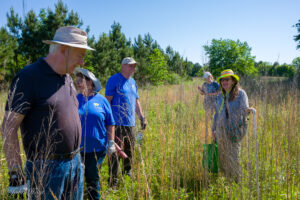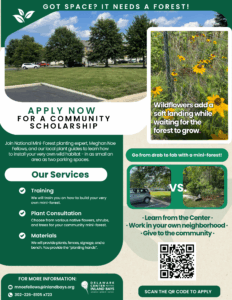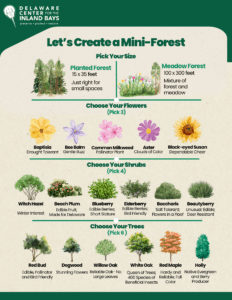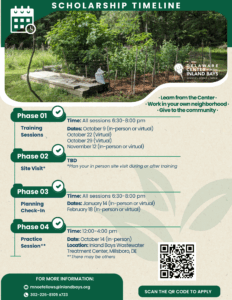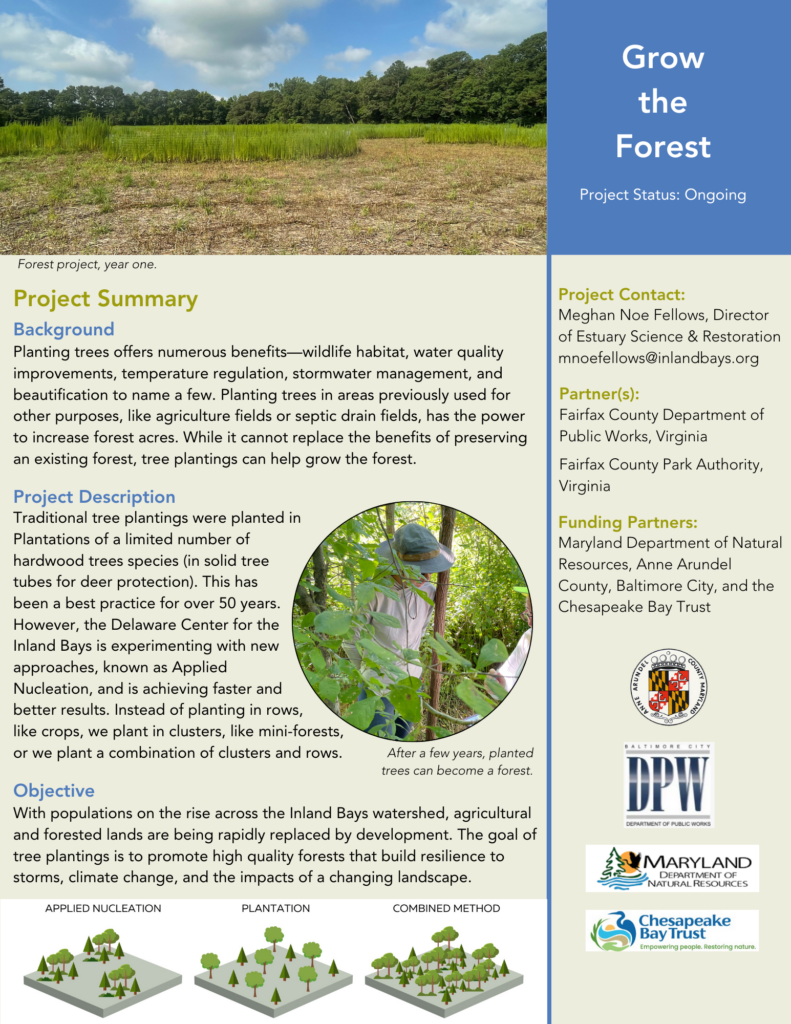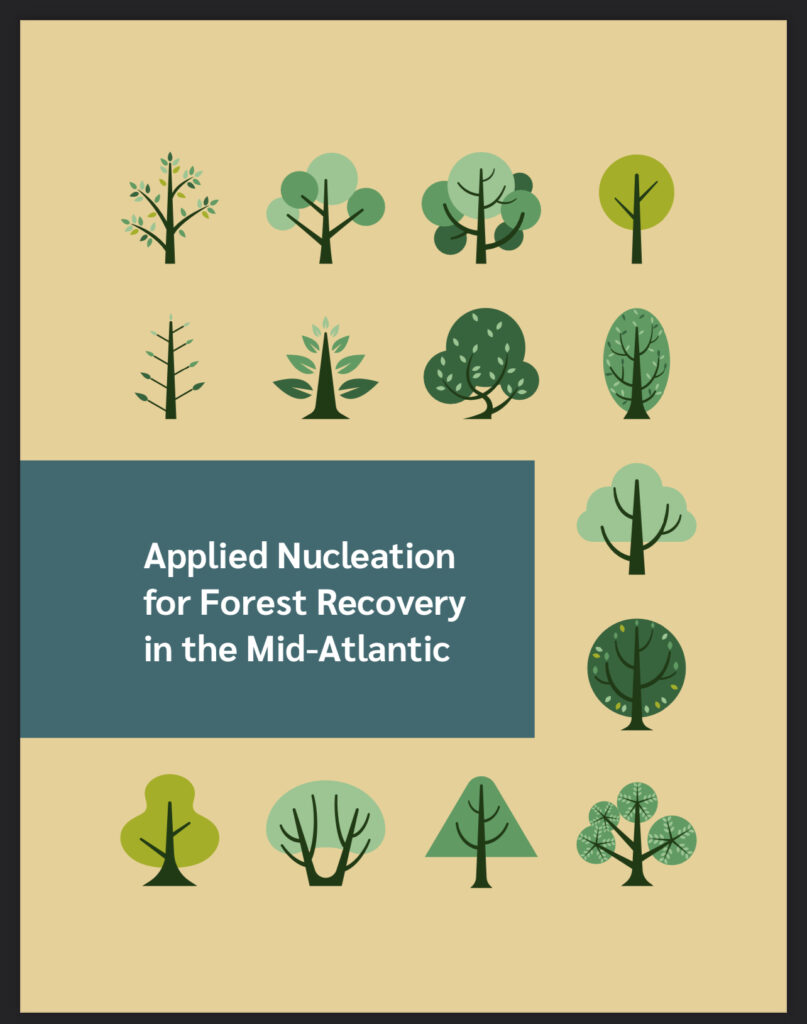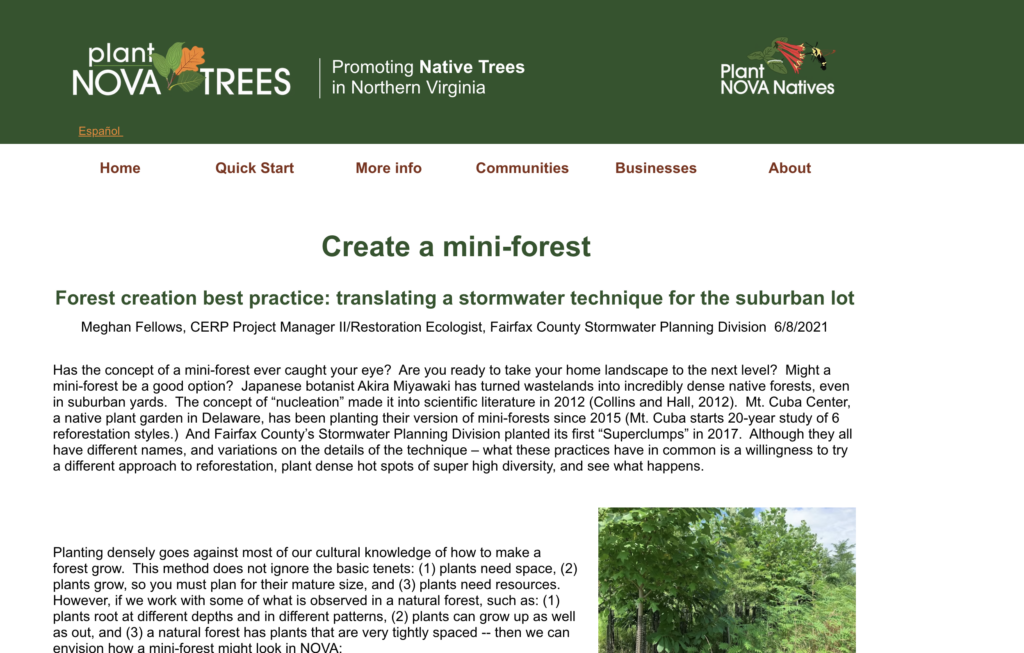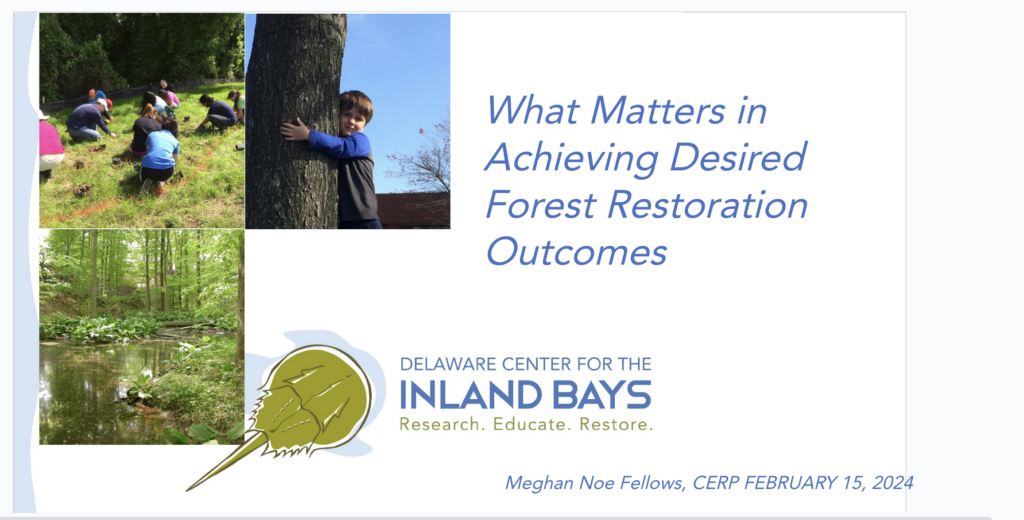Thriving forests play a key role in a healthier environment and cleaner Bays. Despite this importance, Sussex County is estimated to have lost over 2,300 acres of forest between 2013 and 2018, with many of the deforestation hotspots located within the Inland Bays watershed. Along with deforestation related to increased development, threats like the emerald ash borer and invasive vines like English ivy imperil our forests.
Knowing there is a continuing loss of trees and forest resources, the Center has led an effort to restore forests across the watershed. With thousands of acres planted, the Center works with volunteers, landowners, partners, and state and federal grant programs to maximize the number of trees and acres of forest in our watershed.
Although all native trees are associated with benefits from stormwater runoff, reduced temperatures, wildlife support, and aesthetic values, forests provide even more benefits, multiplying the effects of individual trees. Interior forests, or those with greater than 50 acres without an edge, support wildlife that doesn’t exist on the forest edges. The Center staff and volunteers work on projects big (100 acres) and small (<1 acre), whether it be planting or monitoring.
Trees also play a crucial role in climate resilience by acting as natural carbon sinks, sequestering carbon dioxide from the atmosphere and storing it in their wood, roots, and surrounding soil. As they grow, trees absorb CO₂, helping to mitigate climate-related risks by reducing greenhouse gas concentrations. Beyond carbon storage, trees provide essential climate adaptation benefits by offering shade that cools urban areas (in an energy efficient way) during hot summers and serving as windbreaks that protect homes and landscapes from harsh winter storms. Their deep roots stabilize soil, reducing erosion and improving water retention, which is vital during periods of drought or heavy rainfall. By planting and preserving trees, communities can enhance their resilience to shifting climate patterns while supporting biodiversity and cleaner air.
Additional Information

